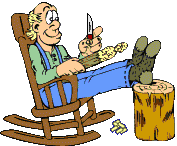So much for Professor Higgins. I bet elocution teachers are the next in line to protest. Now we hear that the British Library is asking the public to help it track how pronunciation is shifting in Britain. And the library thinks it is all OK to say what you like how you like. I'd say that was a kind of reverse snobbery led on by the need for these people to be politically correct at all times.
Joyce Grenfell had a marvellous turn as a schoolmistress keen on correcting the foibles of pronunciation in her classroom. Those at the British Library punting out this casual questionnaire seem to suggest it matters not if an aitch becomes a haitch. But I think it does. It either shows a lack of learning or a defiance of normality in spoken English. Generally, the English have preferred to speak as per their class background. The upper and more learned classes defined proper diction and the rest either followed or did not. This new approach suggests that there is no normality just a kind of wave action of change. Some words get the ripple approach, others a tsunami and change completely.
The song that memorably stands out is "Let's call the whole thing off" and that is a clever take on linguistic differences. Not all Americans say "tow-may-toe" as not all come from a background of rhotic English. However, "tow-may-toe" is in the overwhelming majority. In essence, I think there are standards of correctness in spoken English, but I would never correct anyone (other than for my children or in a classroom environment).
However, saying "mischeev-y-ous" is clearly wrong as the word isn't even spelt that way. One word that has been truly redefined in pronunciation terms is "ven-y-sun" for deer meat. I rather favour the "ven-zun" version, but no doubt we have been culled by a whole host of celebrity chefs. There's influence for you!
And one pronunciation, if that is the correct word for it, is describing the year we are in. Some say "twenty-ten" whilst others opt for the longer "two thousand and ten". David Cameron says both during PMQ's, depending on the way the question has been posed.
Oh, and if were commenting on such things, the new Downton Abbey series, from ITV, has the Earl of Granthumb as a key character. Surely some linguistic mistake? Mrs. Thatcher came from Granthumb but a 100 years ago the town was never referred as such by earls and others.
The dagger in the heart of government growth policy
-
The much travelled PM thinks UK growth has to come from more trade with the
EU and China. I am not sure he knows our big trade with these two is
heavily we...
16 hours ago







.jpg)






0 comments:
Post a Comment